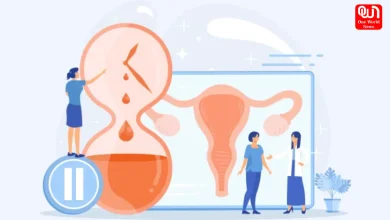Reduce Salt Intake Immediately: WHO Reports

WHO Report: Reducing Salt Intake can Save 7 Million Lives Globally
The WHO Global Report on Sodium Intake Reduction highlighted the need to reduce salt intake in order to improve public health.
The World Health Organization (WHO) is a specialised agency of the United Nations that is responsible for international public health. Founded in 1948, the WHO works to improve health outcomes for people all over the world through research, policy development, and the promotion of healthy behaviours.
What does the report say?
- 89 million people die each year due to diet-related deaths, which is caused by excessive intake of sodium.
- 2. The report states that sodium intake in excess is a major risk factor for non-communicable diseases, including high blood pressure, heart disease, and stroke.
- 3. According to estimates, the average global sodium intake is around 10.78 grams of salt per day. This amount far surpasses the physiological need for sodium and is more than twice the World Health Organization’s (WHO) recommended daily intake of 5 grams of salt for adults.
- The report also suggests that one of the best ways to reduce healthcare costs is to reduce sodium intake, which will cut down the expenses made on treating non-communicable diseases.
A few practical steps, if taken by each country, could prevent cardiovascular disease and its associated costs.
Each of the 194 Member States has pledged to reduce the population’s sodium intake by 30% before 2025, indicating a clear consensus regarding reducing sodium as a life-saving strategy.
Read more:- Being a Physiotherapist in India: Challenging yet Rewarding
Sodium Country Score Card
This is also the first time WHO has taken out a comprehensive scoring on each country’s progress by evaluating their policies. Only 5% of the member states have implemented two mandatory sodium reduction policies.
What is India’s Score?
India scored 2 in the report as it has implemented one voluntary policy. In India, it is mandatory to declare the amount of sodium in pre-packaged food. But, other than this, India has not taken any other step to reduce sodium intake, and hence, it obtained a score of 2.
Bangladesh, Bhutan, Timor- Leste and the Democratic People’s Republic of Korea are other Southeast Asian countries that have received a score of 2. Indonesia, Sri Lanka, and Thailand have a score of 3, whereas no country has a score of 4.
What steps does the report encourage to be taken?
Some of the strategies that can be employed to reduce sodium intake among the public include reducing the amount of sodium in food products, introducing front-of-pack labeling to help consumers choose products with lower sodium content, launching mass media campaigns to promote behavior changes with respect to sodium consumption, and implementing policies around public food procurement and service that seek to lower sodium content in the food sold or served.
The WHO’s global report on sodium intake reduction highlights the urgent need to reduce excess sodium intake to improve public health.
Like this post?
Register at One World News to never miss out on videos, celeb interviews, and best reads.







